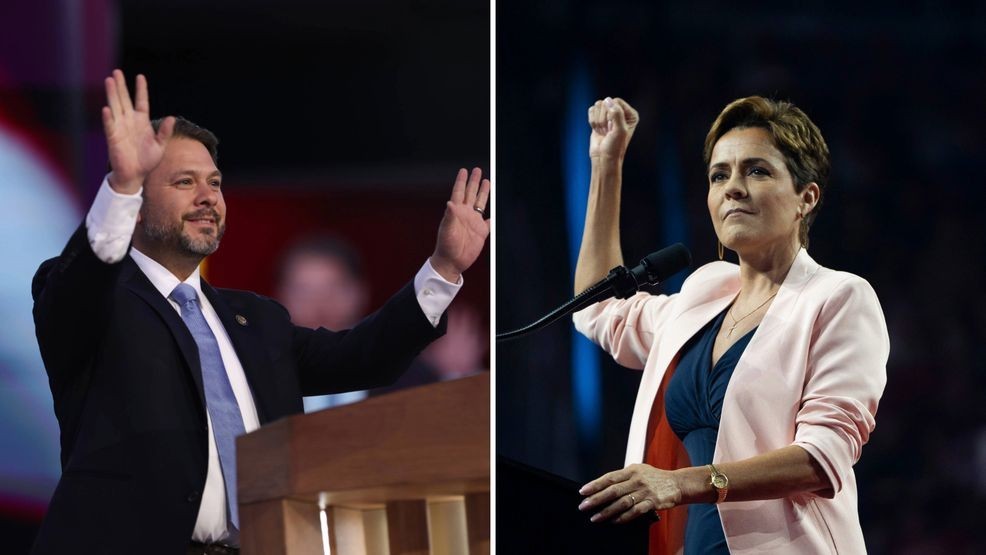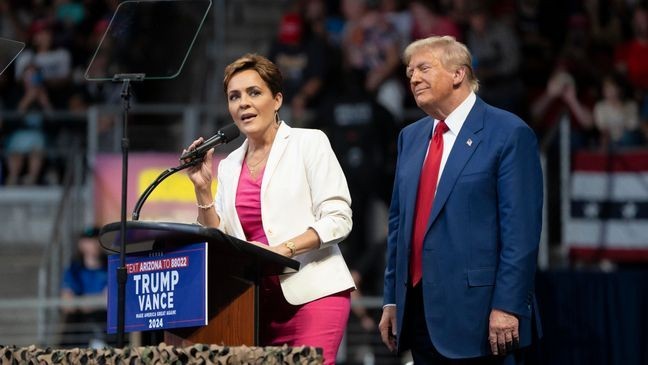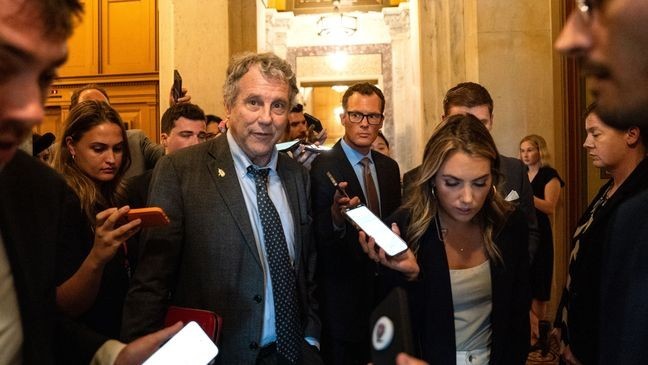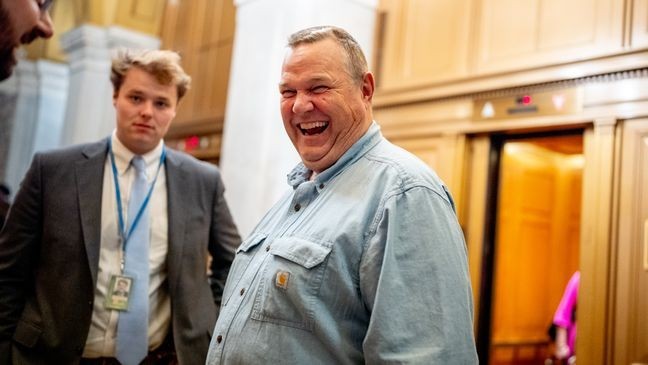Where could split-ticket voting make a difference this election?
(TNND) — Split-ticket voters are likely to have an impact this election, particularly in a handful of crucial Senate races.
Ticket-splitters will vote for a candidate from one party for one office and a candidate from a different party for a different office.
For example, former President Donald Trump might win Nevada, but Democratic Sen. Jacky Rosen might be reelected.
Peter Loge, the director of the School of Media and Public Affairs at George Washington University, said split-ticket voters are often motivated by candidate quality or a familiarity or shared identity with someone in the race.
Sens. Jon Tester and Sherrod Brown are good examples.
And both could again be beneficiaries of split-ticket voting come Nov. 5.
Tester is a Democrat in deep-red Montana. He’s held his Senate seat since 2007, even though his state has voted for the Republican presidential candidate in every election since the mid-1990s.
Brown, also a Democrat, has served in the Senate since 2007. Meanwhile, his state, Ohio, has went into Trump’s column in the last two presidential elections.
“Jon Tester is a Montanan who happens to be a Democrat,” Loge said Friday. “And in Ohio, Sherrod Brown has always been Sherrod Brown of and from working-class, blue-collar Ohio, who happens to be a Democrat, but really he’s Sherrod Brown. And that can carry you for a ways."
This could be the end of the road for Tester, Loge said.
He’s not sure Montana Trump voters are going to give their long-time Democratic senator another term.
But Loge is more optimistic about Brown’s reelection chances in Ohio.
There are 34 Senate seats up for grabs this election, along with all House seats.
Democrats have 23 Senate seats to defend to 11 seats for the Republicans.
Democrats currently control the Senate with the help of a few independents who caucus with Democrats and the tiebreaker if needed from the vice president.
Republicans hold a small advantage in the House.
Loge has a feeling that Republicans will gain control of the Senate by a seat or two.
In the House, it could be a four- or five-seat Democratic majority, he said. A lot depends on what happens in some close races in California and New York, where he said there are some surprising down-ballot races and questions surrounding redistricting and candidate quality.
“But, you know, if you like the Battle of Verdun, you're going to love the next session of Congress,” Loge joked.
Split-ticket voting has been on the decline.
Loge’s GW colleague, Casey Burgat, created a video last month to show how much split-ticket voting has decreased.
Fewer than 4% of congressional districts were decided with split-ticket results in 2020. That’s compared to over 40% of districts turning in split-ticket results 40 years ago.
Loge said that’s the result of the rise of negative partisanship.
“The past couple decades have seen a rise of partisanship (that) doesn't just say that I'm right, but more importantly, you're wrong,” he described.
American voters are “more polarized or more hunkered down” in a way that makes it harder for them to cross party lines in an election, Loge said.
But it does still happen. And one key place we could see split-ticket voting make a difference is in Arizona.
Arizona Sen. Kyrsten Sinema, who became an independent who caucuses with Democrats, isn’t seeking reelection.
GOP candidate Kari Lake is facing off against Democratic Rep. Ruben Gallego to fill the Senate seat from Arizona.
Arizona is among just seven true toss-up states in the presidential election.
A new Marist poll showed Trump with a 50% to 49% edge over Vice President Kamala Harris among likely Arizona voters.
But the same poll showed Gallego with an eight-point lead over Lake.
“One of the reasons people are supporting Ruben Gallego in Arizona is because of his story,” Loge said. “He's got a terrific story. And it's an Arizona story."
Gallego is the son of immigrants, raised by a single mother, and a former Marine.
Loge said Gallego connects with Arizona voters, even some who might also vote for Trump.
Neighboring Nevada could also see a split-ticket result.
Democrat Rosen is running against Republican challenger Sam Brown in Nevada.
A poll from Rasmussen Reports found 49% of likely Nevada voters would pick Trump, while 47% would pick Harris. The same poll found Rosen leading Brown by a three-point margin.
Larry Hogan in Maryland is probably hoping for a split-ticket result, though Loge doesn’t see that as likely.
Hogan is a Republican and a popular former governor who is running for the Senate. But he’ll have to overcome the Harris support in a state that’s voted Democratic in the last eight presidential elections.




